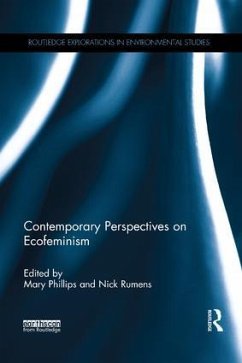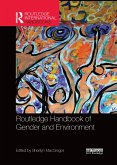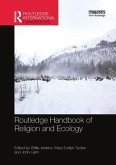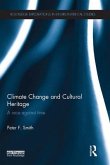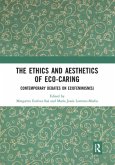Why is ecofeminism still needed to address the environmental emergencies and challenges of our times? Ecofeminism has a chequered history in terms of its popularity and its perceived value in conceptualizing the relationship between gender and nature as well as feeding forms of activism that aim to confront the environmental challenges of the moment.
This book provides a much-needed comprehensive overview of the relevance and value of using eco-feminist theories. It gives a broad coverage of traditional and emerging eco-feminist theories and explores, across a range of chapters, their various contributions and uniquely spans various strands of ecofeminist thinking. The origins of influential eco-feminist theories are discussed including key themes and some of its leading figures (contributors include Erika Cudworth, Greta Gaard, Trish Glazebrook and Niamh Moore), and outlines its influence on how scholars might come to a more generative understanding of the natural environment. The book examines eco-feminism's potential contribution for advancing current discussions and research on the relationships between the humans and more than humans that share our world.
This timely volume makes a distinctive scholarly contribution and is a valuable resources for students and academics in the fields of environmentalism, political ecology, sustainability and nature resource management.
This book provides a much-needed comprehensive overview of the relevance and value of using eco-feminist theories. It gives a broad coverage of traditional and emerging eco-feminist theories and explores, across a range of chapters, their various contributions and uniquely spans various strands of ecofeminist thinking. The origins of influential eco-feminist theories are discussed including key themes and some of its leading figures (contributors include Erika Cudworth, Greta Gaard, Trish Glazebrook and Niamh Moore), and outlines its influence on how scholars might come to a more generative understanding of the natural environment. The book examines eco-feminism's potential contribution for advancing current discussions and research on the relationships between the humans and more than humans that share our world.
This timely volume makes a distinctive scholarly contribution and is a valuable resources for students and academics in the fields of environmentalism, political ecology, sustainability and nature resource management.
"Contemporary Perspectives on Ecofeminism effectively provides an affirmative yes to the driving question the text seeks to answer: 'why is ecofeminism still needed to address the environmental emergencies of our time?'. This text provides a comprehensive overview of both ecofeminist theories and their interaction with contemporary approaches such as affect theory, critical animal studies, material feminisms/new materialism, action research, and postcolonial feminism. Discussing both the origins of influential ecofeminist theories and their contribution to progressing conversations and research on the relationship between humanity and the more-than-human world Contemporary Perspectives on Ecofeminism equips scholars in the fields of philosophy, environmental humanities, environmental studies, political ecology, sustainability and conservation with both knowledge and suggestions for how to better address the social and environmental injustices from their respective perspectives and approaches." - Sarah O'Brien, Drew Theological School

